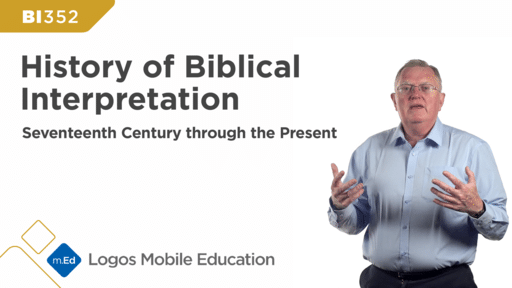BI352 History of Biblical Interpretation II: Seventeenth Century through the Present
Sign in to rateIn BI351 Dr. Bray examines the foundations of the Old and New Testaments as well as the development of new theological perspectives since the 17th century. He outlines significant trends and major players in biblical criticism and how these relate to the modern scholarly climate. Dr. Bray provides guidance on how to approach Bible study and emphasizes the importance of applying God’s word.
